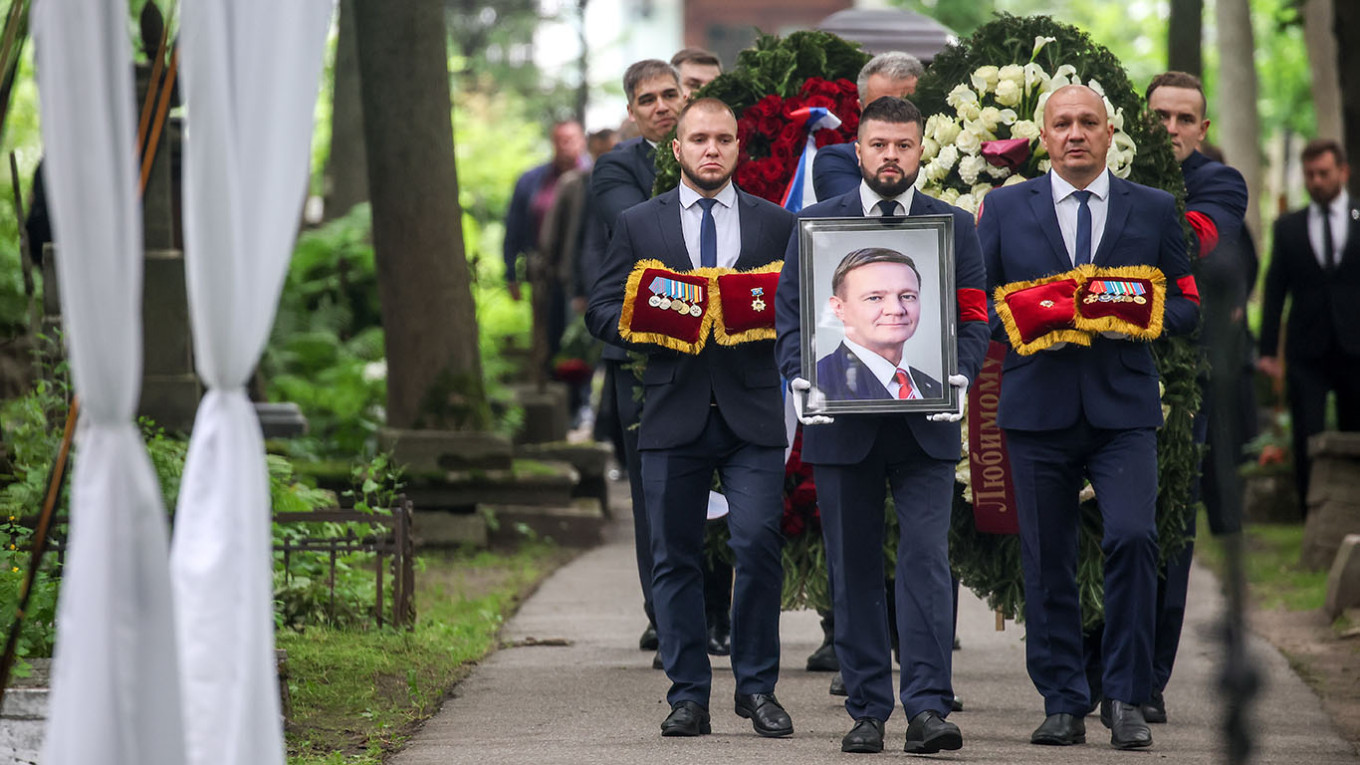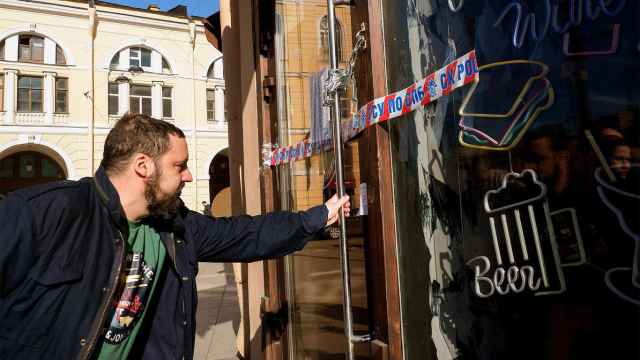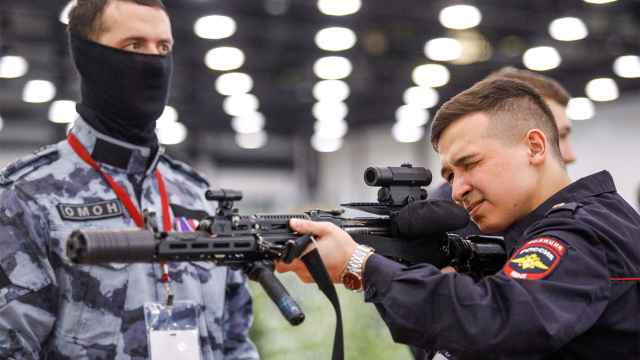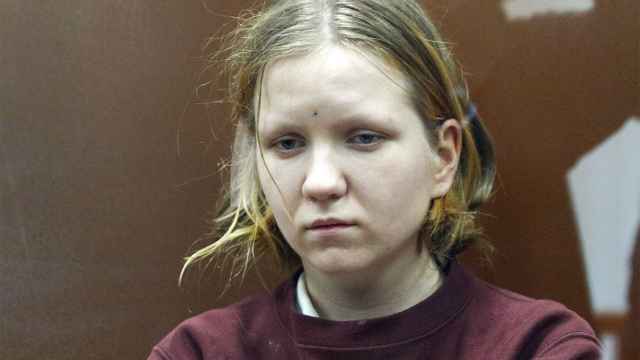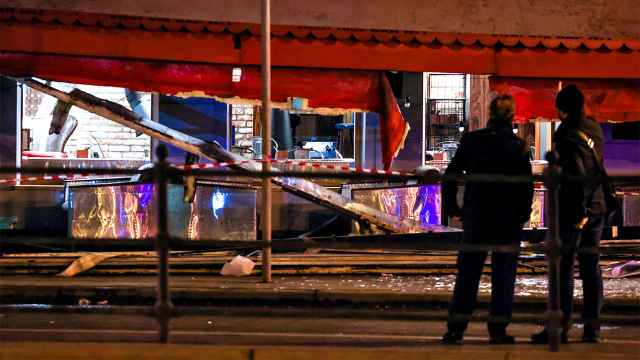A funeral for former Transportation Minister Roman Starovoit was held in St. Petersburg on Friday, days after he died in an apparent suicide outside Moscow following his surprise dismissal by President Vladimir Putin.
Leningrad region Governor Alexander Drozdenko, as well as other federal and regional officials who had worked with Starovoit over the years, attended the morning ceremony, according to the local news outlet Fontanka.
Video published by the Kommersant business newspaper showed a small crowd gathered at Smolensky Cemetery on the city’s Vasilyevsky Island, where a hearse flanked by four pallbearers waited to carry the ex-minister to his burial site.
Fontanka reported that Starovoit was buried near the Chapel of St. Ksenia, an area of the historic cemetery reserved by authorities for cultural and government figures.
Born in the city of Kursk 53 years ago, Starovoit spent much of his childhood in the Leningrad region.
His funeral took place one day after a memorial service in Moscow, which several senior Kremlin officials attended. Putin did not attend but sent a wreath, according to the Kremlin.
Starovoit was found dead with a gunshot wound near a parking lot outside of Moscow on Monday, just hours after the Russian president dismissed him without explanation. Police investigators are treating the case as a suspected suicide.
Starovoit had reportedly left a two-word farewell message in a Transportation Ministry work chat before his death, saying “It was an honor,” Kommersant reported Thursday, citing an unnamed deputy of the ex-minister.
The late official was dismissed over a year after being appointed transportation minister. Before that appointment, he served as the governor of the southwestern Kursk region from 2018 to May 2024.
Starovoit’s removal and subsequent death have fueled speculation that he may have been facing criminal prosecution as part of an ongoing investigation into alleged corruption in the construction of border defenses in the Kursk region, which saw a major Ukrainian incursion last August.
While he had not been formally implicated in that investigation, Russian media cited unnamed sources as saying that suspects in the case, including his predecessor in the Kursk region, Alexei Smirnov, had recently testified against him.
A Message from The Moscow Times:
Dear readers,
We are facing unprecedented challenges. Russia's Prosecutor General's Office has designated The Moscow Times as an "undesirable" organization, criminalizing our work and putting our staff at risk of prosecution. This follows our earlier unjust labeling as a "foreign agent."
These actions are direct attempts to silence independent journalism in Russia. The authorities claim our work "discredits the decisions of the Russian leadership." We see things differently: we strive to provide accurate, unbiased reporting on Russia.
We, the journalists of The Moscow Times, refuse to be silenced. But to continue our work, we need your help.
Your support, no matter how small, makes a world of difference. If you can, please support us monthly starting from just $2. It's quick to set up, and every contribution makes a significant impact.
By supporting The Moscow Times, you're defending open, independent journalism in the face of repression. Thank you for standing with us.
Remind me later.


